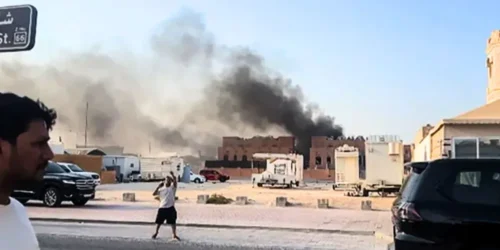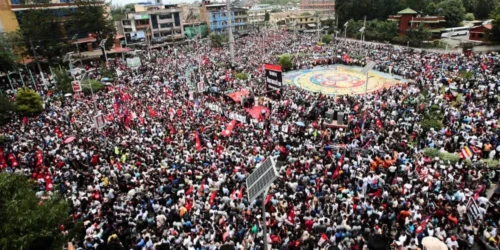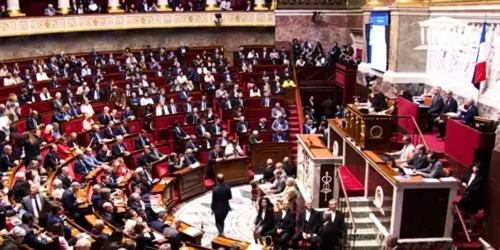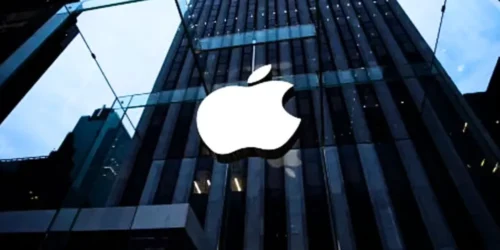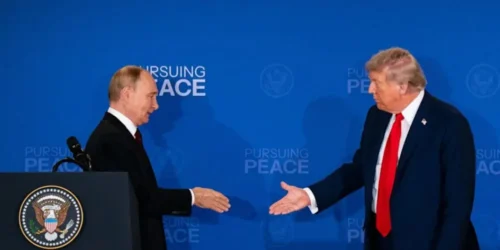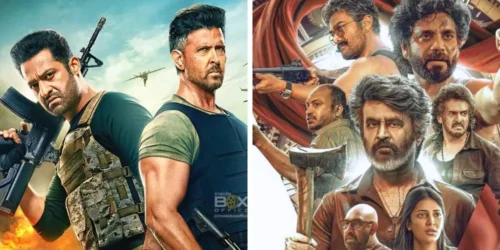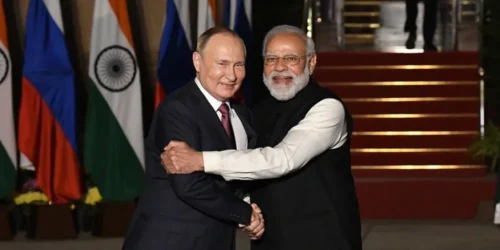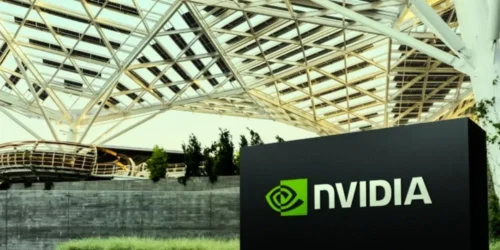Corruption is a word we think we know. We see it in screaming headlines about bribery scandals, in images of dictators with gold-plated toilets, in hushed conversations about backroom deals. However, treating corruption as a series of isolated crimes fundamentally misunderstands its nature. It is to mistake the symptoms for the disease.
Real, systemic political corruption is not an anomaly; it is a system. It is a parasite that latches onto the body politic, hollowing out its institutions from the inside. It operates in the shadows, creating a parallel state with its own rules, its currency of favors, and its ruthless logic. This shadow state does not just steal money; it also undermines democracy. It steals trust. It poisons public life, erodes faith in democracy, and creates a pervasive cynicism that can curdle into rage, paving the way for demagogues who promise to burn the whole rotten structure to the ground.
This is a case study of that parasite. We will not simply list its various forms. We will dissect its anatomy, trace its life cycle, and examine the profound, often catastrophic, damage it inflicts. Our primary patient for this dissection will be Brazil, a nation whose recent history was upended by “Operation Car Wash” (Operação Lava Jato), arguably the largest anti-corruption investigation in modern history. The Brazilian case is a terrifyingly perfect microcosm of how systemic corruption operates: how it is established, how it can be exposed, and how the explosive aftermath of that exposure can be as perilous as the disease itself.
This is not a story for the faint of heart. It is a journey into the dark arts of state capture, a world where public office is the ultimate private asset and national budgets are treated as personal slush funds. But it is also a story of defiance—of the crusading prosecutors, investigative journalists, and ordinary citizens who dare to expose the workings of the shadow state. To understand their fight is to understand one of the central, enduring battles of our time: the struggle to ensure that the state serves the public, not the powerful.
The Anatomy of the Parasite – Understanding Corruption Beyond the Handshake
Before we descend into the labyrinth of Brazilian politics, we must first establish a clinical understanding of our subject. Corruption is a shapeshifter, adapting its methods to the legal and cultural environment it inhabits. To combat it, we must first acknowledge its various forms.
From Petty Bribes to Grand Larceny
At its most fundamental level, corruption is the misuse of public office for personal gain. This exists on a spectrum. At the low end is petty corruption: the traffic cop who takes a small bribe to ignore a violation, the bureaucrat who demands “tea money” to stamp a permit. This kind of corruption is corrosive and infuriating, acting like sand in the gears of daily life.
At the high end is grand corruption. This is where the real damage is done. This is the domain of government ministers, presidents, and their cronies. It involves staggering sums of money and the perversion of national policy. It includes:
- Bribery and Kickbacks: The classic transaction. A company pays a politician to win a government contract. The bribe is often disguised as a “consulting fee” or a political donation, and the kickback is a percentage of the contract’s value, paid back to the official who approved it.
- Embezzlement: The outright theft of public funds. A minister in charge of an infrastructure project simply diverts millions from the budget into their offshore bank account.
- Nepotism and Cronyism: Appointing friends, family, or political allies to powerful positions, regardless of their qualifications. This populates the government with loyalists who will facilitate further corruption and ensure the spoils are kept within a trusted circle.
Kleptocracy and the Hollow State
When grand corruption becomes the organizing principle of a government, it morphs into kleptocracy—literally, “rule by thieves.” In a kleptocracy, the state’s institutions no longer even pretend to serve the public. Their primary function is to enrich the ruling elite. The national treasury, state-owned enterprises, the military, and even the judiciary are all repurposed as tools for plunder. Ferdinand Marcos in the Philippines and Suharto in Indonesia were classic 20th-century kleptocrats, looting their nations of billions.
The Apex Predator: State Capture
The most sophisticated and insidious form of corruption is state capture. This represents a subtle yet profound shift from simple bribery. In a bribery scheme, a company pays a politician to influence or alter a rule. In state capture, powerful private interests don’t just bend the rules; they write the rules.
They do this by systematically infiltrating the state itself. They use their immense wealth to finance the campaigns of dozens of politicians across multiple parties, effectively buying a controlling interest in the legislature. They ensure their allies are appointed to key regulatory bodies. They fund think tanks and media outlets to shape public opinion. The goal is not to win a single contract, but to design the entire legal and regulatory framework of the country to favor their interests. They can ensure environmental regulations are weak, tax loopholes are wide, and public subsidies flow their way. The state has been “captured,” transformed from a public referee into a private tool. This is the shadow state in its ultimate form, and it is precisely what investigators in Brazil would uncover.
This parasitic system thrives in specific conditions. It needs weak, underfunded, and politicized institutions—a judiciary that can be pressured, auditors who can be ignored. It requires secrecy, operating through shell companies, offshore accounts, and complex money laundering networks. And most of all, it needs public apathy or a culture of impunity, a widespread belief that “this is just how things are done.”
The Patient – Dissecting Brazil’s Operation Car Wash
For years, Brazil projected an image of vibrant, ascendant democracy. It was the “B” in the BRICS, a rising economic power, host of the World Cup and the Olympics. But beneath this glittering surface, the parasite of corruption had sunk its hooks deep into the nation’s political and economic heart. The story of its exposure begins, as these stories often do, with a single, loose thread.
The Spark at the Gas Station
In March 2014, federal police in the southern city of Curitiba launched a small-scale investigation into a group of black-market money dealers, known as doleiros. One of these dealers, Carlos Habib Chater, operated a gas station and a money-laundering service out of its back office. This is what gave the investigation its prosaic name: Operação Lava Jato, or “Operation Car Wash.”
The police were pulling on a thread they thought would lead to a modest money-laundering ring. Instead, they found themselves pulling on the central artery of the largest corruption scheme ever uncovered. The doleiro network, they discovered, was not just serving petty criminals. It was the financial infrastructure for a scheme of unimaginable scale, connecting Brazil’s largest construction companies with executives at the state-owned oil giant, Petrobras.
The Machinery of the Scheme
The Lava Jato scheme was a masterclass in systemic corruption and state capture. It was elegant in its simplicity and breathtaking in its audacity. It worked like this:
- The Cartel: A group of Brazil’s largest construction conglomerates—giants like Odebrecht, Camargo Corrêa, and Andrade Gutierrez—secretly formed a cartel. They would meet in private to decide amongst themselves who would “win” the next major Petrobras contract for a new refinery, pipeline, or drilling platform.
- The Inflated Bid: The designated “winner” would submit a bid to Petrobras that was deliberately and massively inflated, often by 20-30% above the actual cost. The other cartel members would submit even higher bids or bids designed to be disqualified, creating the illusion of a competitive process.
- The Complicit Executives: Senior executives within Petrobras, many of whom were political appointees, would approve these inflated contracts. They knew the prices were absurd, but they were key cogs in the machine.
- The Kickback: This is where the stolen money entered the shadow state. The construction company, having received its massively over-priced contract, would then pay a “kickback” of 1-3% of the contract’s value. This kickback money was funneled through the doleiros to disguise its origin.
- The Distribution: The laundered money was then distributed to two groups: the corrupt Petrobras executives who had approved the deals, and, most importantly, to a vast network of politicians and political parties.
This was not about enriching a few individuals. This was the primary financing mechanism for Brazil’s entire political class. The bribes weren’t just for lavish lifestyles (though there was plenty of that); they were used to fund election campaigns, buy political loyalty, and keep the machinery of power running. The scheme implicated politicians across the ideological spectrum, from the ruling Workers’ Party (PT) of Presidents Luiz Inácio Lula da Silva and Dilma Rousseff, to the opposition parties. It was a multi-party, systemic conspiracy to loot the nation’s largest and most beloved company.
The Unraveling: Plea Bargains and the “Confession Bomb”
The investigative team in Curitiba, led by a tenacious young judge named Sérgio Moro, faced a wall of silence. The powerful men they were targeting were not going to confess. Moro and his team decided to use a powerful legal tool aggressively: the delação premiada, or “rewarded testimony”—a plea bargain.
They would arrest a high-level executive. Faced with the prospect of decades in prison, he would be offered a deal: cooperate fully, detail the entire scheme, name every politician who took a bribe, provide evidence, and in return, receive a significantly reduced sentence.
The first major executive to crack was Paulo Roberto Costa, a former Petrobras director. His confession was a bombshell, implicating dozens of politicians. This set off a chain reaction. As each executive or politician was named, they too were arrested and offered a plea bargain. The conspirators, terrified of being the last one left holding the bag, began turning on each other in a frantic race to the prosecutor’s office.
The biggest confession bomb of all came in 2016, when Marcelo Odebrecht, the CEO of the eponymous construction giant and one of the most powerful men in Brazil, signed a plea deal. His testimony, along with that of 76 of his fellow executives, was an encyclopedia of corruption. They provided spreadsheets, bank records, and code names for politicians who received bribes. They detailed a “Department of Structured Operations” within their company, which was a dedicated department for bribery.
The scale was staggering. Over the course of a decade, the scheme had siphoned an estimated $5 billion in bribes from Petrobras alone. But Odebrecht revealed it went far beyond that, involving other state contracts for everything from World Cup stadiums to nuclear power plants. The investigation expanded to include hundreds of politicians, including a third of the federal Senate, dozens of members of Congress, governors, and ultimately, former and current presidents. The shadow state had been dragged, kicking and screaming, into the daylight.
The Body Politic in Convulsions – The Brutal Aftermath
The exposure of a parasite of this magnitude does not lead to a clean and easy recovery. It leads to convulsions, fever, and a profound crisis for the host body. The aftermath of Lava Jato was a brutal demonstration of the true costs of corruption and the destabilizing power of its revelation.
The Economic Collapse
The first and most immediate consequence was economic carnage. The investigation paralyzed Brazil’s entire construction and energy sector.
- Bankrupt Titans: The construction giants at the heart of the scheme, like Odebrecht, were hit with massive fines and barred from bidding on new public contracts. They were forced to lay off hundreds of thousands of workers and teetered on the brink of bankruptcy.
- A Crippled Champion: Petrobras, once the proud symbol of Brazil’s economic might, was gutted. Its market value plummeted. Its credit rating was downgraded to junk status. It was forced to slash investment, halting projects nationwide and contributing to a deep and painful recession.
- The Price of Uncertainty: The political chaos created by the scandal scared away foreign investment. The Brazilian economy, which had been booming just a few years earlier, contracted sharply. Unemployment soared. The cost of the corruption was not just the billions stolen, but the trillions lost in economic activity and human potential.
The Political Implosion
The political fallout was even more dramatic. The scandal consumed the entire political establishment, leading to a series of seismic shocks.
- The Impeachment: In 2016, President Dilma Rousseff, who had served as chairwoman of Petrobras during many of the years of corruption, was impeached and removed from office. While she was not directly charged with personal enrichment, she was accused of using illegal accounting maneuvers to conceal the extent of the budget deficit exacerbated by the recession, a recession that the scandal had helped create.
- The Fall of a Political Icon: The most shocking development was the prosecution of former President Luiz Inácio Lula da Silva, universally known as Lula. A figure of immense popularity who had overseen Brazil’s boom years, Lula was convicted of corruption and money laundering in 2017 for accepting renovations on a beachside apartment from one of the construction companies. His imprisonment in 2018 prevented him from running in that year’s presidential election, which polls showed he was favored to win. (The Supreme Court later annulled Lula’s conviction on procedural grounds, and he would go on to be re-elected president in 2022, a testament to the wild, unpredictable turns of Brazilian politics.)
- The Rise of the Outsider: The Lava Jato scandal created a profound power vacuum and a wave of popular disgust with the entire political class. The public saw a system where everyone, left and right, was complicit. Into this environment of rage and cynicism stepped Jair Bolsonaro, a far-right, fringe congressman and former army captain. Bolsonaro ran on a simple, powerful platform: he was the clean-handed outsider who would jail the corrupt politicians and restore order. His populist, anti-establishment message resonated deeply with a traumatized public, and he rode the wave of anti-corruption anger to the presidency in 2018.
This is one of the most critical and cautionary lessons of the Lava Jato saga. The fight against corruption, while necessary, can itself be a profoundly destabilizing force. The public’s legitimate anger at a corrupt elite can be harnessed by demagogues who may pose their own, different threats to democratic institutions. The cure, in some ways, can produce a new and dangerous fever.
The Antibodies – Forging a Path Through the Miasma
The story of Operation Car Wash is a terrifying diagnosis. But it also contains, within its narrative, the seeds of a potential cure. The fight against systemic corruption is not hopeless. It is a grinding, long-term battle that requires a multi-front assault, strengthening the “immune system” of the state and society.
The Power of Independent Institutions
The Lava Jato investigation was only possible due to a series of institutional reforms in Brazil over the preceding decades. The 1988 constitution had granted significant independence and power to federal prosecutors and the judiciary. This allowed a small team in Curitiba to pursue powerful figures without immediate political interference. The lesson is clear: the first line of defense against corruption is a set of truly independent, well-funded, and empowered institutions. This includes:
- An Independent Judiciary: Judges must be able to rule based on the law, not on political pressure.
- Autonomous Prosecutors: Prosecutors must have the authority and resources to investigate anyone, regardless of their power or influence.
- Robust Auditing Agencies: A non-partisan national audit office can act as a financial watchdog, flagging suspicious contracts and budget irregularities before they spiral out of control.
Radical Transparency: Sunlight as the Ultimate Disinfectant
The shadow state thrives in darkness. The most potent weapon against it is transparency. Corruption becomes much more difficult when the public can see what its government is doing. Key transparency measures include:
- Open Contracting: All government procurement, from the initial bid to the final payment, should be published online in a machine-readable format that is easily accessible. This allows journalists, academics, and ordinary citizens to scrutinize deals for red flags.
- Asset Declarations: Public officials should be required to declare their assets upon taking and leaving office publicly. This makes it harder to explain a sudden and unexplained surge in wealth.
- Beneficial Ownership Registries: The shell companies used to launder money should be made transparent. Laws should require the disclosure of the real, human “beneficial owner” of any company, piercing the veil of corporate anonymity.
The Crucial Role of a Free and Fearless Press
Throughout the Lava Jato scandal, investigative journalists played a critical role. They digested complex court documents, explained the intricate scheme to the public, and kept the story on the front pages, ensuring that public pressure for accountability never waned. An independent press, free from government control and corporate influence, acts as a vital part of the societal immune system. It asks the uncomfortable questions and holds power to account.
International Cooperation: A Globalized Fight
Corruption is now a globalized enterprise. Bribes are paid through shell companies in Panama, laundered through luxury real estate in London, and hidden in secretive bank accounts in Switzerland. The fight must be global as well. International cooperation is essential. This includes:
- Mutual Legal Assistance Treaties: Streamlining the process for prosecutors in one country to obtain evidence and bank records from another.
- Targeted Sanctions: Tools like the Global Magnitsky Act in the United States enable governments to impose visa bans and asset freezes on individual corrupt officials from other countries, making it more difficult for them to enjoy their illicitly acquired wealth.
The Citizen as the Final Backstop
Ultimately, institutions and laws are only as strong as the public will to defend them. The fight against corruption cannot be a purely top-down, elite-driven affair. It requires sustained, bottom-up pressure from an engaged citizenry. The massive street protests that swept Brazil during the Lava Jato years were a powerful signal to the political class that the public would no longer tolerate the old ways. Civil society organizations, activist groups, and ordinary voters who demand accountability are the final, and most powerful, antibody against the disease of corruption.
Conclusion: The Enduring Battle
The legacy of Operation Car Wash is complex, messy, and deeply contested. It was a landmark victory for accountability, a moment when a nation dared to prosecute its most powerful figures and expose the rot at the core of its political system. It demonstrated that even the most entrenched systems of corruption can be challenged.
Yet, it was also a trauma. It plunged the nation into a deep recession, triggered a political crisis that led to the rise of a populist strongman, and ultimately, saw some of its methods and key figures (including Judge Moro, who later joined Bolsonaro’s cabinet) accused of political bias. It did not “end” corruption in Brazil. The parasite was wounded, but not killed.
This is the essential, sober lesson of our case study. Political corruption is not a problem that can be solved once and for all, like a mathematical equation. It is a chronic human condition, a constant temptation that must be perpetually managed, fought, and held at bay. It is a battle that is never truly won, but can be definitively lost.
The shadow state is always there, waiting in the wings, ready to reassert its control. It feeds on our cynicism, our apathy, and our despair. The fight against it requires a difficult combination of outrage and patience. It requires the courage to expose the rot, but also the wisdom to manage the chaotic aftermath of that exposure. It demands that we build strong, independent institutions, but also that we recognize that those institutions are only ever as strong as the citizens who stand behind them.
The struggle against corruption is, ultimately, a struggle for the soul of democracy itself. It is the fight to decide who our institutions truly serve: the connected few, or the public to whom they rightfully belong. The battle rages on, in Brazil and every nation on Earth. And it demands our constant, unyielding vigilance.


